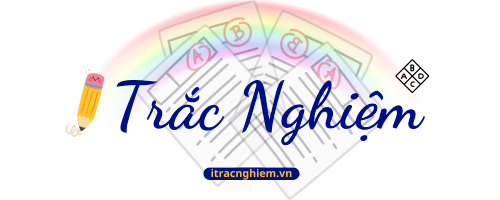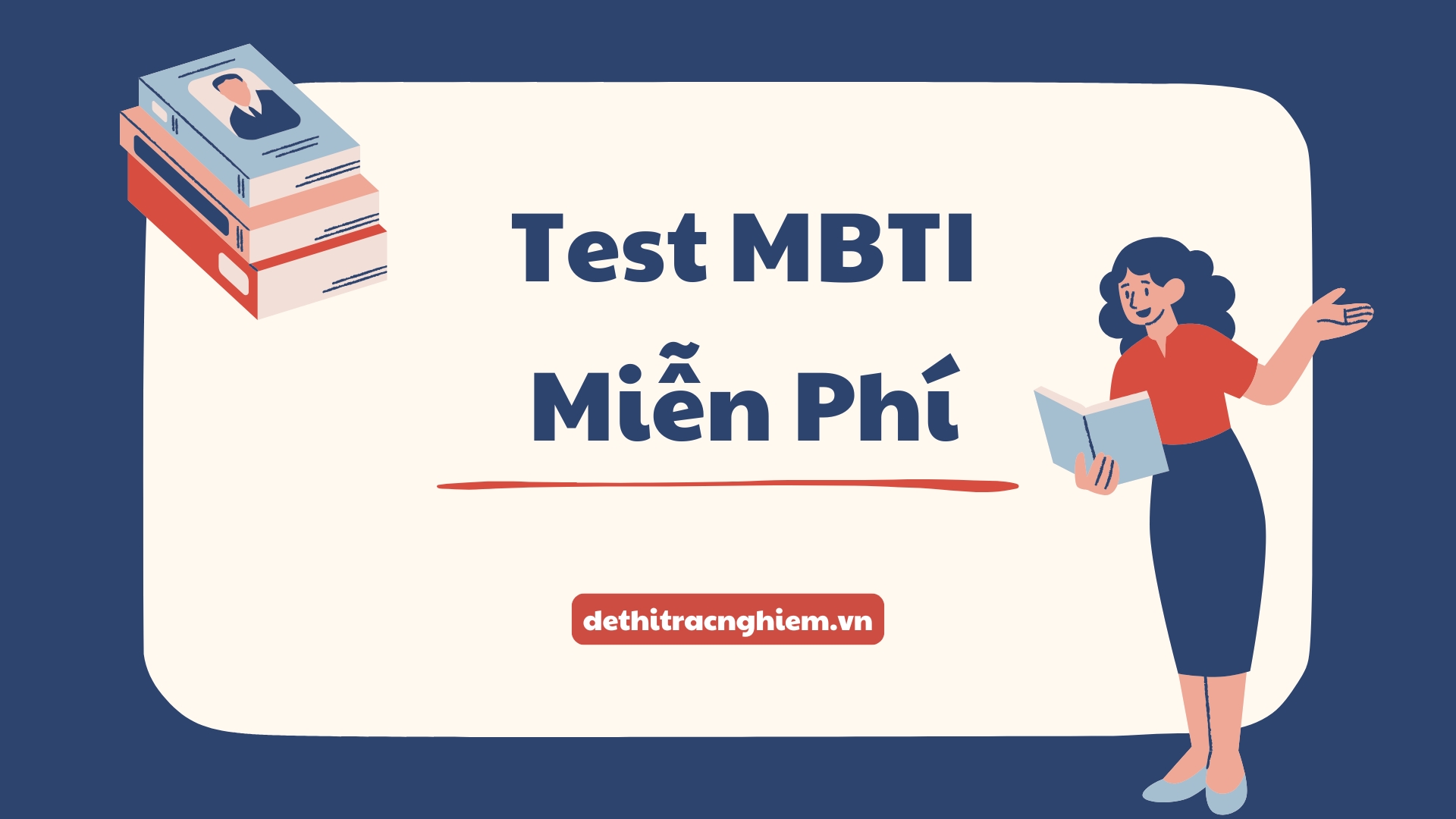Đề thi thử THPTQG – Môn Tiếng Anh 2020 là một trong những đề thi thuộc Đề thi vào Đại học, được xếp trong chuyên mục Tổng hợp đề thi thử môn Tiếng Anh THPT của chương trình Đề thi vào Đại học. Đây là tài liệu thiết yếu giúp học sinh lớp 12 luyện tập và chuẩn bị kỹ lưỡng cho kỳ thi tốt nghiệp THPT Quốc gia môn Tiếng Anh – một môn thi bắt buộc có vai trò quan trọng trong việc xét tuyển vào các trường đại học, cao đẳng.
Khi ôn luyện Đề thi thử THPTQG – Môn Tiếng Anh 2020, học sinh cần chú ý hệ thống kiến thức trọng tâm như: cấu trúc ngữ pháp cơ bản và nâng cao, kỹ năng đọc hiểu bài luận, bài báo, email tiếng Anh, từ vựng học thuật theo chủ đề, kỹ năng viết lại câu, kỹ năng chọn đáp án nhanh và chính xác. Đồng thời, việc thực hành đề thi thử sẽ giúp các em rèn luyện tâm lý phòng thi, nâng cao khả năng quản lý thời gian và tăng độ chính xác trong làm bài.
Hãy cùng Dethitracnghiem.vn tìm hiểu về đề thi này và tham gia làm kiểm tra ngay lập tức!
Đề thi thử THPTQG – Môn Tiếng Anh 2020




Question 1. A. attends
B. appears
C. accepts
D. complains
Question 2. A. light
B. rise
C. mile
D. gift
Question 3. A. respect
B. marry
C. depend
D. predict
Question 4. A. fantastic
B. powerful
C. sensitive
D. personal
Question 5. The view is great, ______?
A. isn’t it
B. was it
C. doesn’t it
D. did it
Question 6. Mark hopes ______ a small part in the school play.
A. to get
B. getting
C. get
D. got
Question 7. If I ______ just one year younger, I would be eligible for the scholarship.
A. am
B. will be
C. would be
D. were
Question 8. His health has improved a lot since he ______ doing regular exercise.
A. starts
B. started
C. has started
D. had started
Question 9. Parents shouldn’t use physical punishment ______ it negatively influences children’s development.
A. because of
B. although
C. because
D. in spite of
Question 10. We’ll send you an email of confirmation ______.
A. after we had made our final decision
C. while we were making our final decision
B. before we made our final decision
D. as soon as we have made our final decision
Question 11. You should book ______ advance because the restaurant is very popular in the area.
A. on
B. by
C. with
D. in
Question 12. Tommy is on the way to his friend’s birthday party, carrying a gift box ______ in colourful paper.
A. were nicely wrapped
B. having wrapped nicely
C. nicely wrapped
D. nicely wrapping
Question 13. Many twelfth graders find it hard to ______ what university to apply to.
A. decide
B. decision
C. decisive
D. decisively
Question 14. He is disappointed at not winning the competition, but he will soon ______ it.
A. take after
B. get over
C. look after
D. go over
Question 15. The government has ______ every effort to stop the rapid spread of COVID-19.
A. done
B. made
C. created
D. brought
Question 16. Making chicken soup is not difficult; it’s just a matter of following the ______.
A. ingredients
B. design
C. spices
D. recipe
Question 17. After his miraculous recovery from the stroke, the man spent the ______ of his life travelling and doing charity work.
A. remainder
B. abundance
C. legacy
D. excess
Question 18. Despite our careful planning, the whole surprise party was a ______ of accidents.
A. volume
B. verse
C. chapter
D. page
Question 19. Mark the letter A, B, C, or D on your answer sheet to indicate the word(s) CLOSEST in meaning to the underlined word(s) in each of the following questions. Laura handled the vase with great care for fear of breaking it.
A. strength
B. comfort
C. success
D. attention
Question 20. Mark the letter A, B, C, or D on your answer sheet to indicate the word(s) CLOSEST in meaning to the underlined word(s) in each of the following questions. It is considered wise to keep silent when one is angry because saying anything then may make matters worse.
A. sensible
B. generous
C. modest
D. careless
Question 21. Mark the letter A, B, C, or D on your answer sheet to indicate the word(s) OPPOSITE in meaning to the underlined word(s) in each of the following questions. When Josh was promoted to the position of marketing director, he had to shoulder more responsibilities.
A. receive
B. prevent
C. avoid
D. carry
Question 22. Mark the letter A, B, C, or D on your answer sheet to indicate the word(s) OPPOSITE in meaning to the underlined word(s) in each of the following questions. The athlete’s bitter defeat in the match dealt a blow to his hopes of defending his title at the championship.
A. destroyed
B. raised
C. expressed
D. weakened
Question 23. David is talking to Lucy about her painting. ~ David: “What a beautiful painting!” ~ Lucy: “______”
A. No problem
B. It’s on the wall
C. I’m glad you like it
D. You’re welcome
Question 24. Peter and Dane are talking about environmental protection. ~ Peter: “We should limit the use of plastic bags.” ~ Dane: “______. We can use paper bags instead.”
A. I completely agree
B. It’s not true
C. I don’t quite agree
D. You’re wrong
Read the following passage and mark the letter A, B, C, or D on your answer sheet to indicate the correct word or phrase that best fits each of the numbered blanks from 25 to 29. Ecotourism. The primary aim of ecotourism is to educate the traveller and bring him or her closer to nature. Participants are given the chance to visit parts of the world (25) ______ are untouched by human intervention and to engage in conservation work and various other kinds of environmental projects.
Visitors benefit by gaining an appreciation of natural habitats and an (26) ______ into the impact of human beings on the environment. Local communities gain financially but also in (27) ______ ways, since not only monuments but other buildings as well, such as bridges or windmills, are restored in order to attract more visitors. (28) ______, there are also disadvantages to this type of tourism. There have been cases in which tourism has been allowed to develop with no control or limits. As a result, (29) ______ cultures have been affected or even threatened by foreign lifestyles. Many people today support that our approach to the development of ecotourism has to be reconsidered. It is essential that this type of tourism be environmentally, socially, and culturally friendly. Question 25:
A. who
B. that
C. when
D. why
Question 26:
A. advent
B. intent
C. access
D. insight
Question 27:
A. other
B. another
C. every
D. one
Question 28:
A. Although
B. Therefore
C. However
D. Moreover
Question 29:
A. primary
B. peculiar
C. indigenous
D. exotic
Question 30. Which best serves as the title for the passage?
A. Teen Issues
B. Family Rules
C. Parents’ Advice
D. Parents’ Anger
Question 31. The phrase “go mad” in paragraph 1 is closest in meaning to ______.
A. get bored
B. feel sad
C. remain calm
D. become angry
Question 32. Which is NOT mentioned in paragraph 1 as a cause of arguments between teenagers and parents?
A. Teenagers go shopping a lot.
B. Teenagers drop their clothes on the floor.
C. Teenagers refuse to do the housework.
D. Teenagers do not tidy their rooms.
Question 33. According to paragraph 2, parents have a better chance of changing their children’s behaviour by ______.
A. shouting at them whenever they do something wrong
B. cooking them their favourite food
C. doing the household chores for them
D. letting them experience the bad results of their actions
Question 34. The word “they” in paragraph 3 refers to ______.
A. parents
B. teens
C. psychologists
D. children
Question 35. Which of the following best serves as the title for the article?
A. Oxford University: Lowering Standards in Times of Change!
B. The History of Oxford’s Interviewing Schemes
C. Oxford University Interview Questions. Would You Pass the Test?
D. The Oxford’s Guide to Success in Job Interviews
Question 36. The word “them” in paragraph 1 refers to ______.
A. prospective earth sciences students
B. historians
C. chemistry candidates
D. questions
Question 37. Why has Oxford University publicised its sample interview questions and related advice?
A. To prepare students for unfamiliar questions in their job interviews
B. To familiarise potential applicants with their interview process
C. To test public reaction to their novel interview process
D. To reduce confusion among most of their current students
Question 38. The word “reciting” in paragraph 3 most probably means ______.
A. repeating
B. reassessing
C. releasing
D. revising
Question 39. According to Laura Tunbridge, the question about a candidate’s ways of listening to music is intended to ______.
A. judge the candidate’s ability to react to familiar situations
B. set the context for a more abstract discussion on music-related topics
C. encourage the candidate to elaborate on their individual preferences
D. measure their understanding of how technology affects entertainment choices
Question 40. The word “clear” in paragraph 5 is closest in meaning to ______.
A. pass
B. face
C. give
D. skip
Question 41. Which of the following is TRUE, according to the passage?
A. Dr. Khan advises candidates to focus more on showing their general knowledge at the interview.
B. Oxford University plans to use the same set of questions for all candidates.
C. Oxford University only releases sample interview questions for earth sciences and music.
D. Dr. Khan understands how the notion of attending the Oxford interview may affect prospective candidates.
Question 42. Which question is a history candidate LEAST likely to be asked in the Oxford interview?
A. “How can one define a revolution?”
B. “What would a historian find interesting about the place you live?”
C. “Name some pop idols you would most like to meet. Why the choice?”
D. “Which sort of person in the past would you like to interview? Why?”
Question 43. Maths were one of his favourite subjects when he was at primary school.
A. were
B. his
C. subjects
D. at
Question 44. Daisy enjoys going shopping, playing sports, and to hang out with friends in her free time.
A. enjoys
B. playing
C. to hang out
D. in
Question 45. It was inconsiderable of him not to call home and let his parents know he wouldn’t come back until the next day.
A. inconsiderable
B. not to call
C. wouldn’t
D. until
Question 46. Joe is more hard-working than his brother.
A. Joe is not as hard-working as his brother.
B. Joe’s brother is not as hard-working as he is.
C. Joe is less hard-working than his brother.
D. Joe’s brother is more hard-working than he is.
Question 47. “You’d better stay at home during this time,” he said to Lan.
A. He ordered Lan to stay at home during that time.
B. He warned Lan against staying at home during that time.
C. He advised Lan to stay at home during that time.
D. He thanked Lan for staying at home during that time.
Question 48. You are not allowed to take photos in the museum.
A. You may take photos in the museum.
B. You should take photos in the museum.
C. You mustn’t take photos in the museum.
D. You needn’t take photos in the museum.
Question 49. The film is not perfect. Its abrupt ending spoils it.
A. The film would be perfect if it ended abruptly.
B. Provided the film ended abruptly, it would not be perfect.
C. Unless the film ends abruptly, it won’t be perfect.
D. But for its abrupt ending, the film would be perfect.
Question 50. Olga handed in her exam paper. She then realised that she had missed one question.
A. Having realised that she had missed one question, Olga handed in her exam paper.
B. Not until Olga had handed in her exam paper did she realise that she had missed one question.
C. Had Olga realised that she had missed one question, she wouldn’t hand in her exam paper.
D. Only after Olga realised that she had missed one question did she hand in her exam paper.




